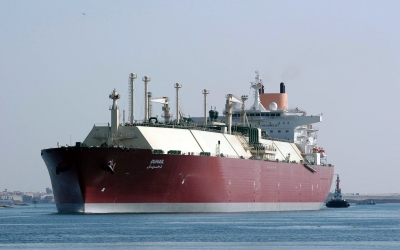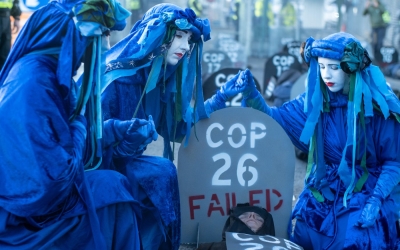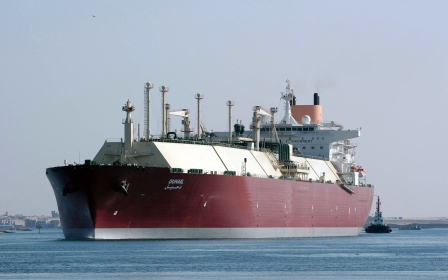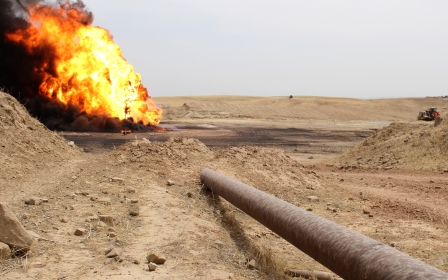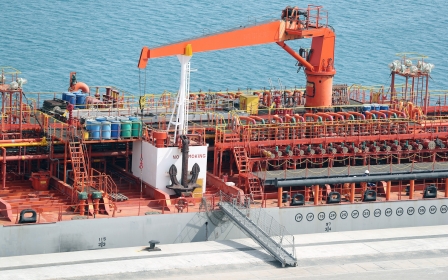Energy crisis: Qatar eyes opportunity to strengthen ties with UK
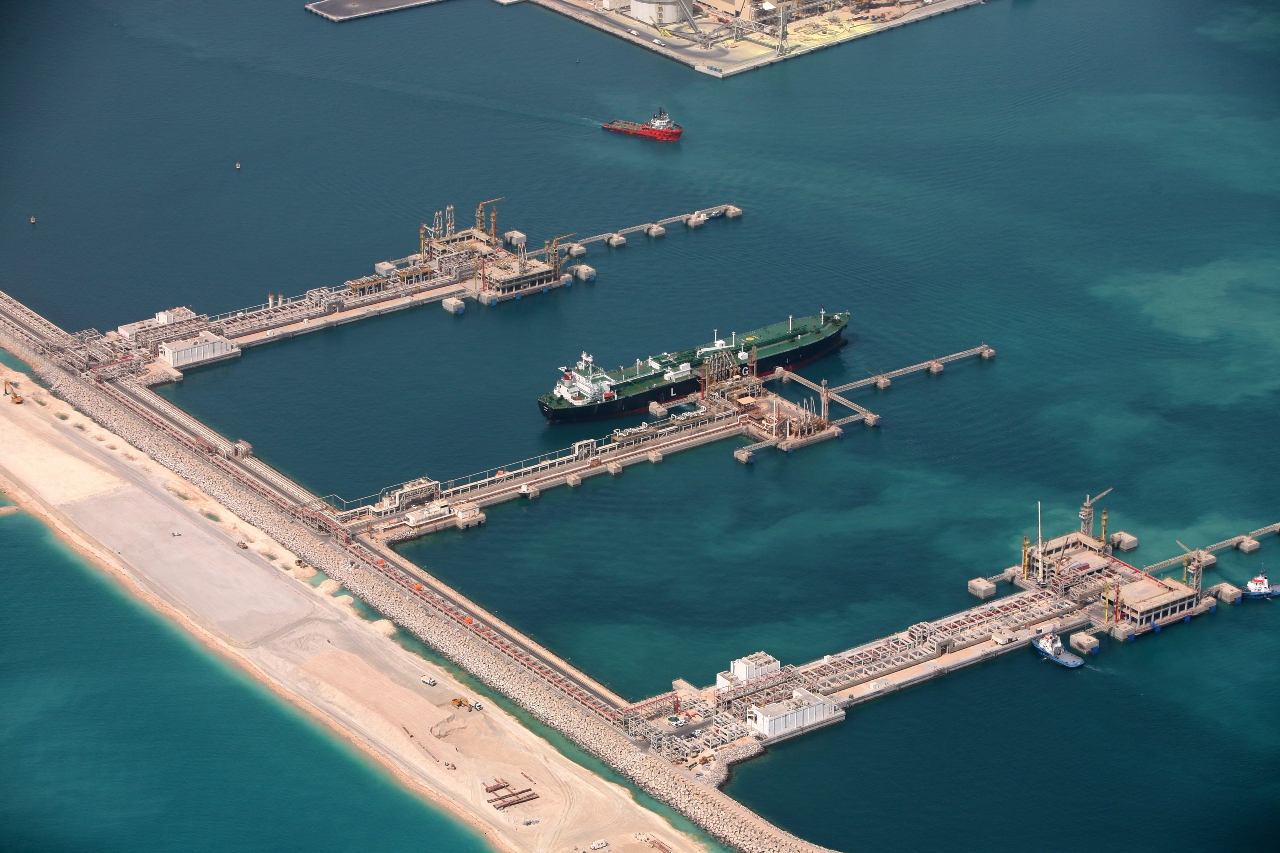
Qatar is considered Britain’s best bet to get out of its energy pickle.
Natural gas prices have surged, some 20 British energy companies have gone bust this year alone, and the United Kingdom only has storage capacity to last a few days.
“The UK is not going to go to the Iranians or the Russians [which have the world’s largest proven gas reserves], but to Qatar, which is third globally,” Hugh Miles, founder of Arab Digest, told Middle East Eye.
In early November, the Financial Times reported that the UK was in talks with Doha for Qatar to be its liquefied natural gas (LNG) "supplier of last resort". Four Qatari LNG tankers were reportedly rerouted from Asia to the UK to help out.
“This issue of ‘supplier of last resort’ is PR speak," said David Roberts, an academic based at King's College London's defence studies department.
"When the energy crisis started a few weeks ago, it was presumed Qatar would step in with more tankers. That has been the case to some degree, and it is not entirely surprising.”
The UK government, however, has denied it is seeking LNG contracts with Qatar.
“The UK government has not requested or secured any additional shipments from the Qatari government,” a government spokesperson stated in an email to Middle East Eye on 15 November.
“Our gas supply remains secure, thanks to a diverse range of sources at home and abroad. We have more than enough delivery capacity to meet demand.”
'Up shit creek'
Despite the government's response, a long-term LNG deal with Qatar is not only likely, say analysts, but inevitable.
“If the UK doesn’t do it now, they will sooner or later. They have to," said Naser Tamimi, a senior associate at the Italian Institute for International Political Studies (ISPI).
"The UK government doesn’t want to give the impression there is a crisis but if you see the figures, storage is low and everything else is low. They must be getting something from Qatar.”
Meanwhile, the Qataris would be more than willing to do a deal with the British.
'Import dependency will grow, which is why Qatar will be a good fit, as the UK doesn’t want to rely on Russia'
- Naser Tamimi, ISPI
“Qatar would be absolutely thrilled to help, as they’d get good headlines and score points with the UK government and the [British] public," said Miles.
"It is also a life insurance policy - it is politics, Doha is not interested in just making money.”
Qatar has long been a key supplier of LNG to the UK, peaking in 2011 with 98 percent of imports.
The UK then decided to diversify its suppliers of natural gas, with its over-reliance on the Gulf state summed up by Lord Howell in a secret recording on energy policy in 2012: “If it [Qatar] was to go into chaos we would be up shit creek, we really would.”
In 2019, Qatari LNG imports started to rise again, from 15 percent to 39 percent. By 2020, Qatari gas accounted for 48 percent of imports.
“This year will be the same as 2020, at around seven million tonnes, maybe a bit more or less," said Tamimi. "But if you look at the whole picture, Qatar is number one, with nearly half of the UK’s LNG imports.”
The UK’s dependency on natural gas is only set to increase, with domestic production having peaked in 2000. Last year, gas accounted for 30 percent of total energy demand and gas boilers heated 86 percent of British homes, according to the UK Energy Research Centre.
“Import dependency will grow, which is why Qatar will be a good fit, as the UK doesn’t want to rely on Russia, and Norway is at its limits in what they can supply," said Tamimi. "That is why Qatar is the supplier of last resort.”
Such a move would tie into Qatar’s plans to expand its buyer markets beyond Asia - currently around 70 percent of exports - as it increases LNG production from 77 million tonnes a year (MT/y) to 110 MT/y by 2025, and to a further 126 MT/y by 2027.
“Qatar wants to refocus its export relationship with Europe, so a UK-Qatar deal would be a match made in heaven, as the UK needs that gas and needs a supplier of last resort,” said Justin Dargin, an energy expert at Oxford University.
The natural gas industry is a major emitter of methane, a powerful greenhouse gas. At the recently finished COP26 climate summit, hosted by the UK, countries pledged to slash methane emissions by 30 percent by 2030. It is unclear how any plans to increase imports relate to this pledge.
'Contracts are like nuclear secrets'
If the UK seeks a contract with Qatar to be a supplier in extremis, Doha may be flexible.
Typically, Qatar’s long-term contracts are priced at 10 percent to 15 percent of the oil price - if a barrel of oil is $100, the buyer pays $10 to $15 per million British thermal unit (mmBtu).
“Qatar might be flexible, as unlike Asia, the UK is not just a customer. They may give Britain say 9 percent or 10 percent linked to the oil price,” said Tamimi.
But if the market is tight, as right now, Qatar will have to divert shipments to the UK. “For the Qataris, that is a concession, so they may need a contract extended, from five to 10 years, or 10 to 15 years,” said Tamimi.
Whatever deal is inked by Doha, as with contracts with other countries, it will be closely guarded. “Contracts are not shown to the public. They are like nuclear secrets,” said Tamimi.
'The energy trade often acts as a kind of glue to cement more wide-ranging relationships, whether that is economic investment or military cooperation'
- Justin Dargin, University of Oxford
There is more to a deal than Qatar diverting ships full of LNG to keep homes warm in the UK. “It is not the UK going cap in hand [to Qatar], as Qatar prefers to deepen relations," said Dargin.
"The energy trade often acts as a kind of glue to cement more wide-ranging relationships, whether that is economic investment or military cooperation, which tends to follow dependence on energy exports,” said Dargin.
Qatar has used its largesse and historical ties with the UK to cement the relationship, having invested north of $50bn into the British economy in recent years.
Earlier this month, the Qatar Foundation and Rolls Royce entered into a strategic partnership to invest billions in climate-tech businesses.
In arms sales, Qatar has signed $57bn worth of deals with the UK over the past decade. A $6.74bn export deal for 24 Typhoon jets and nine Hawks was signed in 2018, while in April, a defence partnership between the two countries' air forces was inked.
“I don’t think Qatar will strike a hard bargain for LNG," said Miles. "It wants long-term security, and to make sure that when it sounds the alarm, Britain will support them.
"Qatar is ready to do whatever it reasonably can to help out the UK, be it gas or money, which it can easily provide.”
Middle East Eye delivers independent and unrivalled coverage and analysis of the Middle East, North Africa and beyond. To learn more about republishing this content and the associated fees, please fill out this form. More about MEE can be found here.


